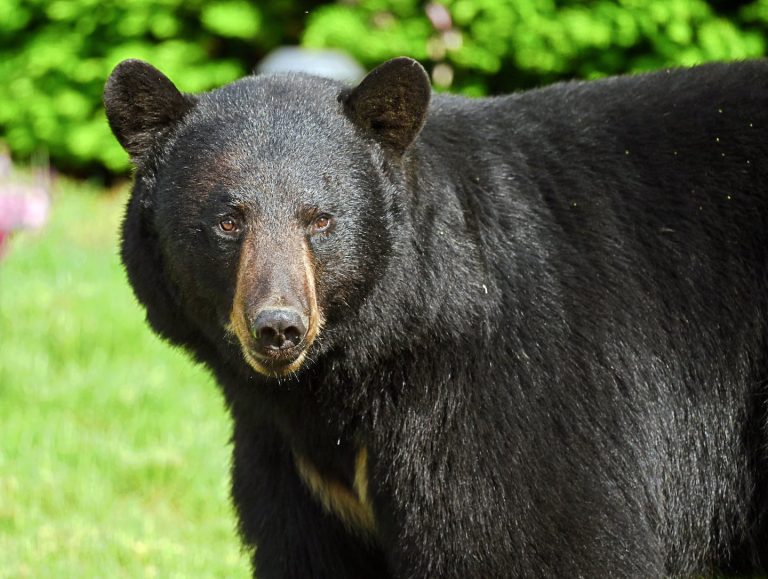Currently, the species poses a problem “pretty much everywhere,” according to Dave Wattles, the Black Bear & Furbearer Project Leader at MassWildlife.
“Most of Massachusetts is bear country,” according to MassWildlife, and the species is expanding eastward into more highly developed areas as their populations increase.
“Humans drive conflict with bears,” Wattles said in a call Thursday. “Bears are just driven to find food after hibernation… If we provide food around our homes they are going to take advantage of that.”
“When natural foods are scarce, especially in the spring or dry summers, bears will venture into backyards and fields in search of easily accessible food such as bird feeders, garbage, grills and pet foods,” the Maine Department of Inland Fisheries and Wildlife said in a release.
The first step to avoid bear conflict is taking down birdfeeders, as they are “one of the biggest drivers of human-wildlife conflict,” Wattles said.
“When bears start getting more comfortable in backyards at birdfeeders, they get more comfortable around people,” Wattles said.
That comfortability means a higher potential for dangerous interactions, experts said.
Another factor driving human-bear conflict is the rise of backyard farming, Wattles said.
People with bees, chickens and small livestock should be cautious of bear activity, experts said. Wattles warns that standard chicken coops or pens are not enough to keep bears out.
The best way to minimize risk is to install electric fences, Wattles said. MassWildlife has an online guide to help install and maintain electric fences.
“Bears are omnivores, but they are mostly vegetarian,” Wattles said. “That’s because they are not built to chase down prey like coyotes or bobcats, but bears are starting to realize they can break into a coop without trying.”
In addition to electric fencing, people can protect their livestock by owning guard animals and keeping farming areas mowed and free from debris, animal carcasses and left over animal feed.
Experts also advise crop and orchard farmers to use electric fencing and maintain vegetation to avoid overgrowth.
People should practice keeping trashcans in closed garages and using bear-resistant trash cans or building a bear-resistant trash can caddy, experts recommend.
When encountering a bear, experts say to avoid approaching the animal and talk in a calm voice while slowly back away. If a bear is in a populated area, experts say to contact the Environmental Police Radio Room at 1 (800) 632-8075 or the nearest MassWildlife District Office to report the sighting.
Sarah Mesdjian can be reached at sarah.mesdjian@globe.com. Follow her on X @sarahs_journal.




